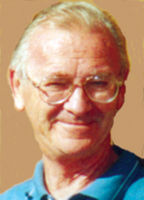 With the declaration of the Year of the Priest by Pope Benedict it makes good sense to begin with the priesthood found in the scriptures. When we come to the new testament the term ‘priest’ is not applied specifically to any Christian.
With the declaration of the Year of the Priest by Pope Benedict it makes good sense to begin with the priesthood found in the scriptures. When we come to the new testament the term ‘priest’ is not applied specifically to any Christian.
If we wish to relate the Catholic priesthood to what the bible actually says about Christian priesthood, we must begin with the old testament. Already an objection might be made, that Christian priesthood is more directly related to the priesthood of Jesus himself, especially as explained in the Epistle to the Hebrews. But there the priesthood of Jesus is itself understood against the background of the old testament and the title of priest is applied to Jesus alone. So we must not denigrate the Israelite concept of priesthood as some do. It is too simple and erroneous to see it as creating a priestly caste set apart from others.
From patriarchs, judges to levites
Throughout the earliest history of Israel in Genesis the patriarch of a family or tribe offered sacrifice (Abraham and Isaac, Jacob and Laban in Genesis 22 and 31). Later, as society organised, some men devoted time to being priests, a role that required knowledge and skill; a priestly profession developed, especially with the tribe of Levi. This group had no share in the Promised Land, for the Lord was their allotment.
A sound lesson from this development is the adaptability of priesthood, a fact that prepares us for much adaptation in the development and history of the Christian priesthood. What we have lived development and change.
A priestly people and people who are priests
As Israelite priesthood took on its professional shape, the whole people was regarded as worthy of the title ‘kingdom of priests, holy nation’ (Exod 19:6). Doesn’t this serve as a reminder of Vatican II speaking of ‘the priesthood of the faithful’? But old testament priesthood was not a vocation or charism in our sense of the term. Prophets, judges, and kings received a charism, but one was born into the Levitical priesthood. One served as a priest because by birth one was a member of a priestly tribe and family. A calling from God was only in terms of the divine providence that guided one’s birth.
Hebrews 5:1 states ‘Every high priest chosen from among mortals…does not presume to take this honour except when called by God.’
The concept of birth into priesthood does not fit our awareness, but while Christian priesthood is entered through personal, voluntary acceptance, it remains an office for which one requires skill and training.
Just as the Levites were taught by other tribal members, so a long period of intellectual and spiritual formation is required for ordination.
While ‘professionalism’ can be an objectionable term, when it means acquiring the skill and training to do the job well, it acquires its pastoral potential. Too charismatic an understanding of Christian ministry is just as dangerous as too professional an understanding!
A man for or a man apart?
In the history of priestly spirituality the church may have adopted too simplistically the OT ideal of the holy purity of priests for this often creates a man apart and nothing is more likely to turn off a healthy aspirant to priesthood than talk of the priest as separated from the people.
A priest comes from a family and his ministry is for families. Any priest knows the richness of this involvement! The holiness of separation hardly does justice to the Christian priest as heir to the apostles who were sent into the world.
The cry since Gaudium et spes: the Church in the Modern World, is for a Christianity that participates in and speaks to the legitimate needs of the world. This is also true for the ministers of the church.
Of course there is some element of separation; what ordination speaks of in its ancient ritual is ‘Understand what you do; imitate what you handle.’
But the holiness of separation demanded of Israelite priests did not make religion at all remote from the lives of the people.
Israel probably gave a better model of the harmony of religion and the world than has often been found in the church through our history.
Interestingly, installation for the Levitical priesthood involved ‘the filling of his hands’, a ceremony in which his hands were filled with the revenues he had a right to. Remember the old commandment of the church, ‘to contribute to the support of one’s pastors’?
Reference: R E Brown Priest and Bishop Paulist Press.